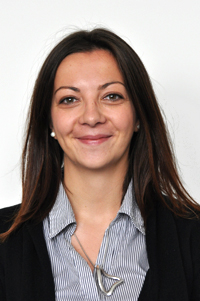Areas of expertise
Farmers, agriculture and food production, ethics of production, rural development, post-socialist rural transformations, post-conflict cooperation, institution-building, land management, waste.
Research areas
Southeast Europe: Serbia, Kosovo, Greek-Albanian border
Short bio
Dr. Dikovic specialized in rural and economic anthropology. She has been affiliated as a researcher and lecturer with academic institutes in Germany (Institute for Cultural Studies and Max Planck Institute for Social Anthropology in Halle), Serbia (Ethnographic Institute of Serbian Academy of Sciences and Arts), and Switzerland (University of Zurich, University of Fribourg, and University of St. Gallen).
She has studied the economic, environmental, and ethical aspects of social transformations and property management in the rural Balkans. In her research, she focuses attention on the complex synergy of virtues, private ownership, and local economic practices, and analyzes how these influence and shape national economies and agricultural policies. In the book she is currently working on, Dr. Dikovic writes about endogenous forms of rural development and their correlation with the state and donor-driven agricultural projects in Serbia.
Dr. Dikovic has commenced study of the economic relationships from the bottom and their spontaneous enhancement of commitment to peace in post-conflict regions. Dr. Dikovic develops the concept of post-conflict cooperation through her ongoing postdoctoral research project Farming under barricades: Study of post-conflict cooperation in Kosovo.
This study focuses on the life of farmers, the major workforce in Kosovo, in the context of post-war institutional anguish and stabilization of interethnic relationships. Barricades – physical, symbolic, mental, political and economic constraints – in this project provide a useful metaphor for understanding the specific and complex situation that emerged after the war in 1999.
Through long term ethnographic research, Dr. Dikovic explores the dialectical character of the barricades and how they simultaneously act as dividers and functional fields of exchange and cooperation. She analyzes the modalities of cooperation and interconnectedness between Kosovo Albanian and Serbian farmers that enable a non-violent cohabitation in the context of an unresolved, simmering conflict. This project aims to discover how life goes on under the barricades and how the hybrid social-political order that emerged as the result of the barricades enhances the cooperation with farmers from the other ethnic group and their peace commitment.
